With the changing dynamics and needs of the industry, people working across the sector are looking for ways to upskill and develop both personally and professionally. The Future Agri Leaders course organised by the Agricultural Science Association (ASA) was developed to encourage the growth of present and upcoming leaders in the Irish food industry.
“I am a strong believer in education and continuous professional development, so when I took over as president, I felt ASA was uniquely positioned to offer this combination to our members in a structure that suited the working professional,” says Niamh Bambrick, ASA president.
Through a combination of theoretical knowledge, practical exercises and real-world applications, the programme was designed to assist individuals in their current and future leadership roles. Twenty professionals working in different roles within the agri-food system have just completed the course, gaining a digital badge and the skills needed to become agri leaders.
Leadership model
Core leadership skills are categorised as:
Administrative – showing technical competencies, managing resources and managing people;Interpersonal – being socially perceptive, showing emotional intelligence and managing interpersonal conflict;Conceptual – creating visions, strategic planning and problem-solving.Course structure and price
Four workshops took place in different locations, which were facilitated by the Food and Industry Training Unit in University College Cork. Clair Hoare, programme manager developed the course structure with an emphasis on transversal skills. “Leaders need to have different skills, from people management to accountancy and managing projects,” says Clair.
“These inlcude soft skills or the transversal skills through to the actual practicalities of running a project and accounts. It was about trying to get a broad aspect of what leaders could know.”

Clair Hoare, Programme Manager, Food Industry Training Unit, UCC.
Leadership and personal development
Taking ownership of personal and professional growth along with setting and achieving meaningful goals is an important part of becoming a leader.
The first day of the course was centred around exploring self-management, workplace well-being, empathy, and resilience to equip participants with an understanding of leadership styles.
Finance for non-financial managers and project management
The second day of the course saw participants learn about budget creation, financial forecasting techniques and effective utilisation of financial data for strategic decision-making.
Project management was also addressed and participants learned how to contribute to the success of projects within their own professional environment.
Constructive and inclusive communication
Tailored around enhancing participants’ communication skills, this topic taught individuals to engage in constructive and inclusive communication that positively influences workplace dynamics and relationships.
Leaders need to build credibility, assertiveness and confidence when they are delivering a message. Emotional intelligence also plays a key role in effective communication especially in terms of being aware of different triggers for employees.
Coaching and performance management
On day four, participants learned the importance of coaching in terms of improving performance, skills, engagement, retention and confidence of employees as it helps individuals identify their strengths and weaknesses.
Along with this, it can be a tool that can help managers drive the performance of individuals
These steps include:
Give context to why the conversation is taking placeUse facts to describe behaviourImpact of behaviourOpportunity to respondAccountability in solutions. A waiting list is in place for next year; to register you interest, email info@asaireland.ie
Brian Duggan: Agronomist/ commercial horticultural specialist, Goldcrop Ltd

Brian Duggan.
“I am responsible for our Commercial Horticulture division, which provides the largest high-quality portfolio of vegetable seed varieties from leading breeding companies along with key inputs to specialist crop growers across the country.
“The horticulture sector in Ireland is one which faces many risks and challenges. Leadership is essential to promote the development of the sector and to support growers. I decided to do the Future Agri Leaders course as I felt it was a great opportunity to build on and develop my leadership skills and further advance my career.
“The course covered an array of topics and I especially benefitted from the ones on personal development and leadership; financial and project management; as well as performance management. Within each of these there were excellent insights and tools provided, which will be relevant in my day-to-day work.
“It was also a great opportunity to network – these relationships will be important as we advance in our careers.”
Dr David Lawrence: Ruminant support specialist, Brett Brothers ltd

Dr. David Lawrence.
“I am working as a ruminant support specialist with
Brett Brothers, who are an animal feed company based in Callan, Co Kilkenny. My role is based on providing advice and support to our technical sales team and their
customer base that are involved in dairy, beef and sheep production.
“I am a very practical person, so I spend most of my time out on farms alongside one of our technical sales representatives.
“In my role, I work within a team in a supportive and mentoring capacity. The Future Agri Leaders programme was ideal for someone like me, as it offered four days of workshops to discuss and develop some of the skillset required for people in similar roles.
“The content was well tailored for people involved in a diverse range of positions in agricultural production.
“I found the project management and communication workshops particularly interesting. I have acquired new tools for improving workflow and engaging with people constructively in a diverse range of professional contexts.”
Michelle McGrath: CellCheck assistant programme manager, Animal Health Ireland
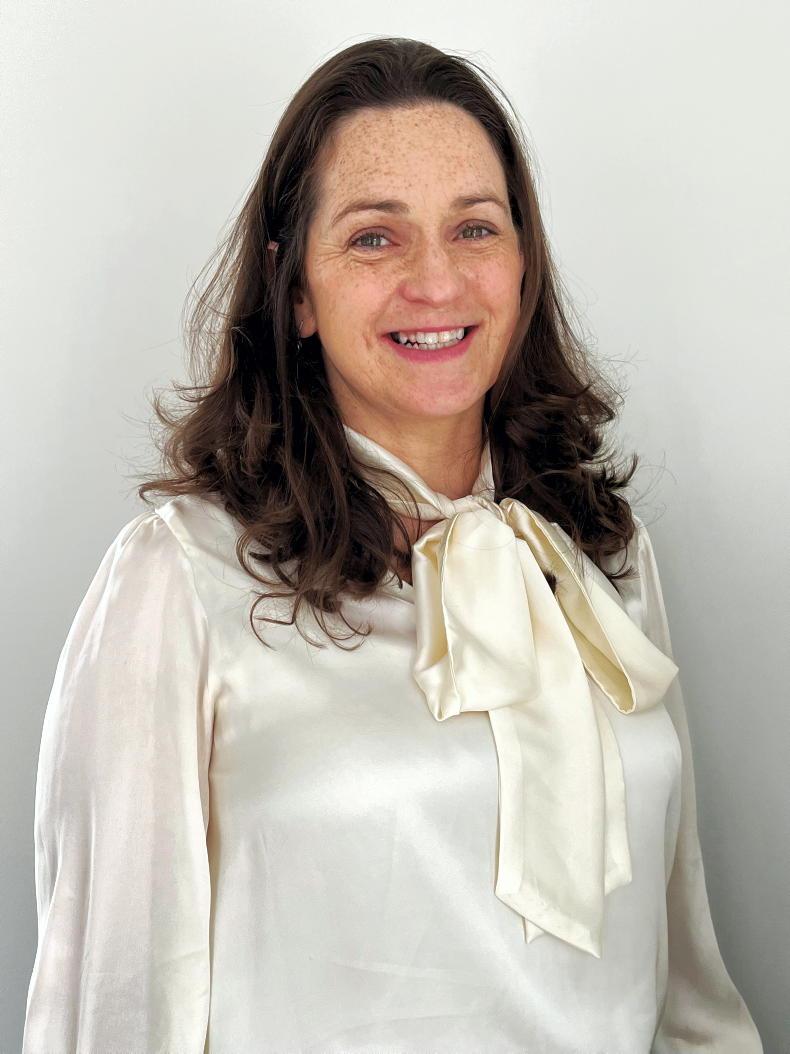
Michelle McGrath.
“I grew up on a dairy farm in East Cork and have been directly involved in farming from a young age. I’ve done my fair share of studying over the years including my degree in agricultural science and a Masters in Bovine Reproduction. After working in the industry though, I pursued my passion and went back to do my degree in Veterinary Medicine in UCD in 2008.
“For 12 years, I worked predominantly in mixed practice in Ireland. I particularly enjoyed working with the farmers to effectively manage infectious diseases in their herds through improved diagnostics, education and targeted therapies. I am heavily involved in the family farm where we show and breed Holstein Friesian cattle and I use this opportunity to promote animal health and welfare.
“I started with Animal Health Ireland (AHI) in 2020 and work across a number of AHI programmes but mostly with CellCheck, the national mastitis control programme and CalfCare. A lot of my work involves liaising across different sectors of the ag industry working with stakeholders, farmers and vets and encouraging collaboration to achieve better animal health.
“At AHI, we are encouraged to participate in training that helps us from a personal and professional perspective so when I saw this course, I believed it had a lot to offer. It covered a number of topics I felt would help me do my job better from project management to communication skills. I learned so much and have met some really interesting people.”
Read more
Agri Careers: farm safety at the forefront of Student Enterprise final
Agri Careers: ‘biotechnology is a growing area globally’
With the changing dynamics and needs of the industry, people working across the sector are looking for ways to upskill and develop both personally and professionally. The Future Agri Leaders course organised by the Agricultural Science Association (ASA) was developed to encourage the growth of present and upcoming leaders in the Irish food industry.
“I am a strong believer in education and continuous professional development, so when I took over as president, I felt ASA was uniquely positioned to offer this combination to our members in a structure that suited the working professional,” says Niamh Bambrick, ASA president.
Through a combination of theoretical knowledge, practical exercises and real-world applications, the programme was designed to assist individuals in their current and future leadership roles. Twenty professionals working in different roles within the agri-food system have just completed the course, gaining a digital badge and the skills needed to become agri leaders.
Leadership model
Core leadership skills are categorised as:
Administrative – showing technical competencies, managing resources and managing people;Interpersonal – being socially perceptive, showing emotional intelligence and managing interpersonal conflict;Conceptual – creating visions, strategic planning and problem-solving.Course structure and price
Four workshops took place in different locations, which were facilitated by the Food and Industry Training Unit in University College Cork. Clair Hoare, programme manager developed the course structure with an emphasis on transversal skills. “Leaders need to have different skills, from people management to accountancy and managing projects,” says Clair.
“These inlcude soft skills or the transversal skills through to the actual practicalities of running a project and accounts. It was about trying to get a broad aspect of what leaders could know.”

Clair Hoare, Programme Manager, Food Industry Training Unit, UCC.
Leadership and personal development
Taking ownership of personal and professional growth along with setting and achieving meaningful goals is an important part of becoming a leader.
The first day of the course was centred around exploring self-management, workplace well-being, empathy, and resilience to equip participants with an understanding of leadership styles.
Finance for non-financial managers and project management
The second day of the course saw participants learn about budget creation, financial forecasting techniques and effective utilisation of financial data for strategic decision-making.
Project management was also addressed and participants learned how to contribute to the success of projects within their own professional environment.
Constructive and inclusive communication
Tailored around enhancing participants’ communication skills, this topic taught individuals to engage in constructive and inclusive communication that positively influences workplace dynamics and relationships.
Leaders need to build credibility, assertiveness and confidence when they are delivering a message. Emotional intelligence also plays a key role in effective communication especially in terms of being aware of different triggers for employees.
Coaching and performance management
On day four, participants learned the importance of coaching in terms of improving performance, skills, engagement, retention and confidence of employees as it helps individuals identify their strengths and weaknesses.
Along with this, it can be a tool that can help managers drive the performance of individuals
These steps include:
Give context to why the conversation is taking placeUse facts to describe behaviourImpact of behaviourOpportunity to respondAccountability in solutions. A waiting list is in place for next year; to register you interest, email info@asaireland.ie
Brian Duggan: Agronomist/ commercial horticultural specialist, Goldcrop Ltd

Brian Duggan.
“I am responsible for our Commercial Horticulture division, which provides the largest high-quality portfolio of vegetable seed varieties from leading breeding companies along with key inputs to specialist crop growers across the country.
“The horticulture sector in Ireland is one which faces many risks and challenges. Leadership is essential to promote the development of the sector and to support growers. I decided to do the Future Agri Leaders course as I felt it was a great opportunity to build on and develop my leadership skills and further advance my career.
“The course covered an array of topics and I especially benefitted from the ones on personal development and leadership; financial and project management; as well as performance management. Within each of these there were excellent insights and tools provided, which will be relevant in my day-to-day work.
“It was also a great opportunity to network – these relationships will be important as we advance in our careers.”
Dr David Lawrence: Ruminant support specialist, Brett Brothers ltd

Dr. David Lawrence.
“I am working as a ruminant support specialist with
Brett Brothers, who are an animal feed company based in Callan, Co Kilkenny. My role is based on providing advice and support to our technical sales team and their
customer base that are involved in dairy, beef and sheep production.
“I am a very practical person, so I spend most of my time out on farms alongside one of our technical sales representatives.
“In my role, I work within a team in a supportive and mentoring capacity. The Future Agri Leaders programme was ideal for someone like me, as it offered four days of workshops to discuss and develop some of the skillset required for people in similar roles.
“The content was well tailored for people involved in a diverse range of positions in agricultural production.
“I found the project management and communication workshops particularly interesting. I have acquired new tools for improving workflow and engaging with people constructively in a diverse range of professional contexts.”
Michelle McGrath: CellCheck assistant programme manager, Animal Health Ireland

Michelle McGrath.
“I grew up on a dairy farm in East Cork and have been directly involved in farming from a young age. I’ve done my fair share of studying over the years including my degree in agricultural science and a Masters in Bovine Reproduction. After working in the industry though, I pursued my passion and went back to do my degree in Veterinary Medicine in UCD in 2008.
“For 12 years, I worked predominantly in mixed practice in Ireland. I particularly enjoyed working with the farmers to effectively manage infectious diseases in their herds through improved diagnostics, education and targeted therapies. I am heavily involved in the family farm where we show and breed Holstein Friesian cattle and I use this opportunity to promote animal health and welfare.
“I started with Animal Health Ireland (AHI) in 2020 and work across a number of AHI programmes but mostly with CellCheck, the national mastitis control programme and CalfCare. A lot of my work involves liaising across different sectors of the ag industry working with stakeholders, farmers and vets and encouraging collaboration to achieve better animal health.
“At AHI, we are encouraged to participate in training that helps us from a personal and professional perspective so when I saw this course, I believed it had a lot to offer. It covered a number of topics I felt would help me do my job better from project management to communication skills. I learned so much and have met some really interesting people.”
Read more
Agri Careers: farm safety at the forefront of Student Enterprise final
Agri Careers: ‘biotechnology is a growing area globally’









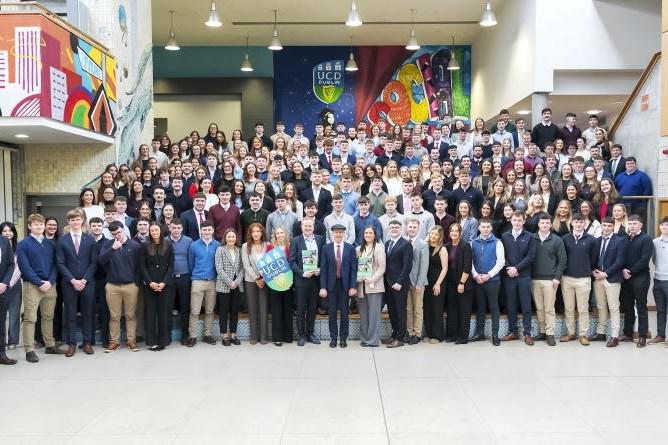
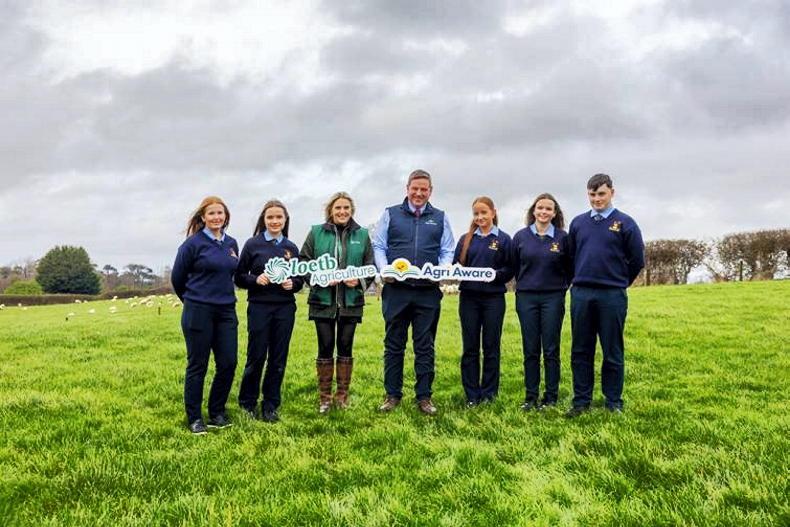
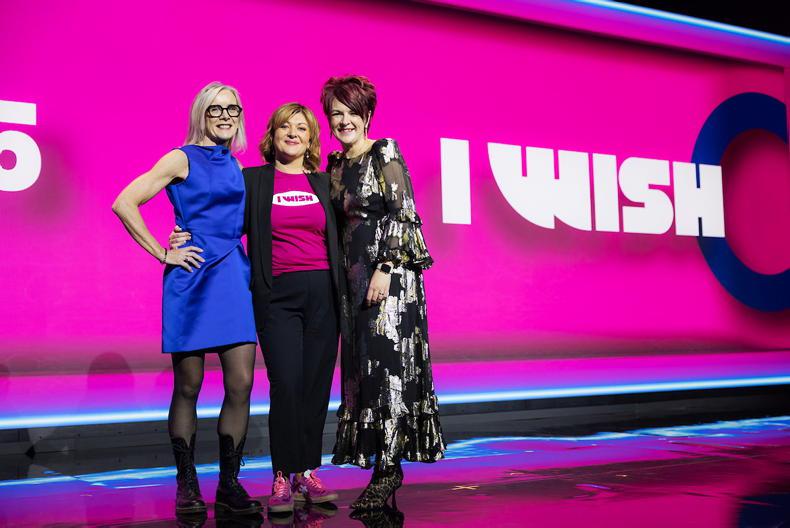
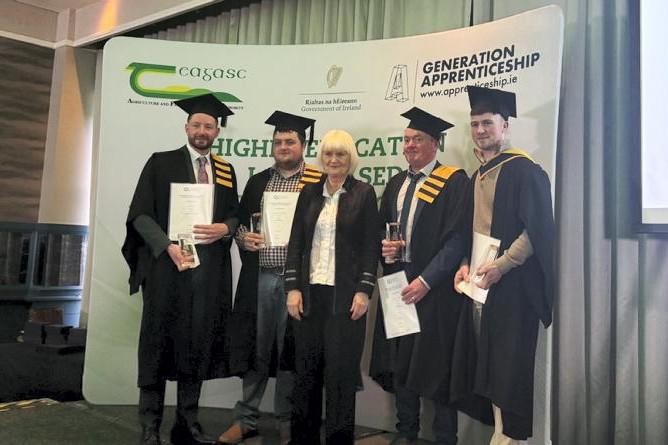
SHARING OPTIONS